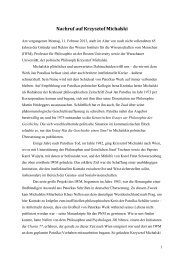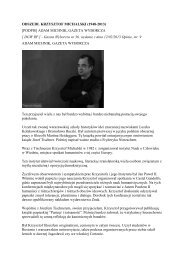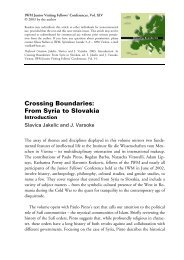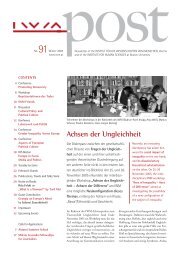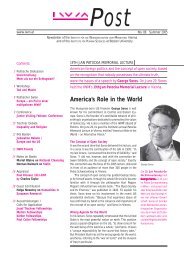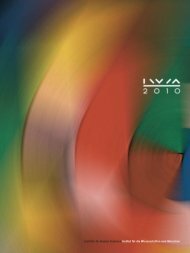Questionable Returns: Introduction - IWM
Questionable Returns: Introduction - IWM
Questionable Returns: Introduction - IWM
Create successful ePaper yourself
Turn your PDF publications into a flip-book with our unique Google optimized e-Paper software.
ANDREW BOVE: INTRODUCTION 4<br />
Huang, an anthropologist, deals with a phenomenon not so much of religious return<br />
as religious expansion and adaptation. Her topic is the extraordinarily successful<br />
Buddhist Compassionate Relief Society, a Taiwanese non-governmental organization<br />
that has spread around the globe and become one of the world’s largest<br />
charitable organizations in its 35 years of existence. Her intriguing question, “What<br />
Travels?”, supplies the framework for a study of the relation between religious charisma<br />
and charitable relief in a global society. Huang’s account of the organization<br />
and its founder explores with great clarity connections between traditional Buddhist<br />
notions of compassion and modern humanitarian ideals.<br />
The third “questionable return” is that of the notion of culture, the topic of articles<br />
by Jyoti Mistry and Andrew Bove. Mistry’s paper is a case study of the South<br />
African contribution to the 2000 Millennium Global Television Broadcast. She<br />
discusses how traditional images of South African culture – village life, dancing, the<br />
natural beauty of the land, etc. – were employed to the political end of integrating<br />
the new South African nation into a quite different global culture based on commerce.<br />
The broadcast centered on Robben Island, the site of Nelson Mandela’s imprisonment,<br />
and Mandela’s symbolic passing of the flame to current President<br />
Thabo Mbeki literally stole the show, since the broadcast’s international producers<br />
had expressly prohibited political content. Mistry’s account of the event shows the<br />
difficulty, and perhaps the futility, of attempting to fix a border between indigenous<br />
culture and the demands of present day international politics and economics.<br />
Bove considers the use of the notion of culture in modern empirical political science.<br />
He argues that there are serious problems with the way culture has been incorporated<br />
into certain models of political explanation. These problems point to a<br />
more general tension between politics and culture in both the theory and the practice<br />
of the modern state, for which the dualism between a low-brow modern politics<br />
of individual satisfaction and the cultural critique of modern politics is a constant<br />
source of instability. Bove argues that recent attempts to bring culture to politics<br />
ultimately point the way back to Hegel and his radical reconception of Bildung<br />
as an immanent process of self-completing division within the modern state. We<br />
are given a fresh perspective on what is often inaccurately regarded as Hegel’s attachment<br />
to a fustian or even totalitarian educational ideal.<br />
The methodological and epistemological emphasis of Bove’s article carries over<br />
into part four, consisting of two papers concerned in quite different ways with the<br />
restoration of universality in the human sciences. Alessandro Barberi, a historiogra-


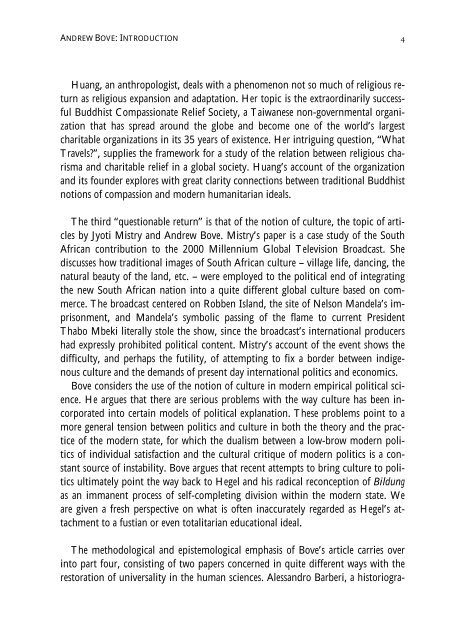
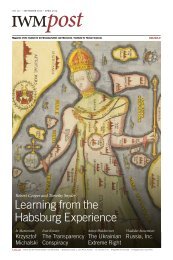
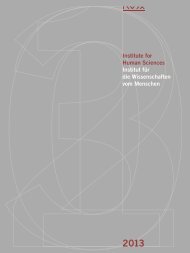
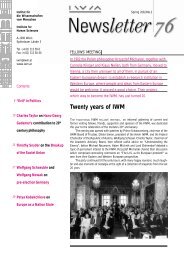
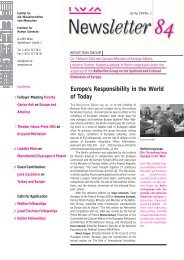
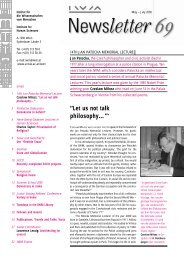
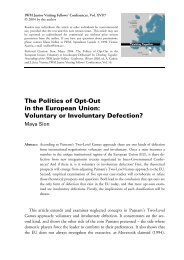
![POSZUKIWAÅ PRAWDY I ZABAWY [PODPIS] PROF ... - IWM](https://img.yumpu.com/23611273/1/184x260/poszukiwaa-prawdy-i-zabawy-podpis-prof-iwm.jpg?quality=85)
